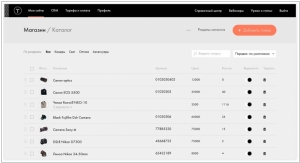Tilda vs WordPress
October 03, 2025 | Author: Sandeep Sharma
8★
Tilda is a no-code website builder for creating all kinds of websites: online stores, landing pages, blogs, portfolios, membership websites, etc.
53★
WordPress is web software (+service) you can use to create a beautiful website or blog. We like to say that WordPress is both free and priceless at the same time. The core software is built by hundreds of community volunteers, and when you’re ready for more there are thousands of plugins and themes available to transform your site into almost anything you can imagine.
See also:
Top 10 Website building platforms
Top 10 Website building platforms
Tilda and WordPress are both popular platforms that allow to create websites without extensive programming knowledge. They offer ready-made templates for quick launch, a variety of modules (blog, news, carousels, maps) that can be embeded anywhere on the site, allow to connect a custom domain with SSL and support responsive design for mobile devices. Both platforms allow you to create a website for free.
But Tilda is a simple online visual builder where you create a website from blocks using drag-and-drop. It's convenient for making landing pages and small websites, especially because it offers a free plan for sites with up to 50 pages. The service has a built-in statistics system, CRM for tracking clients and requests, which can be integrated with a website contact form and email newsletters (via MailChimp or SendGrid). You can also organize website collaboration by granting access to multiple employees.
WordPress is primarily an open-source CMS with a huge community that developed thousands of plugins and themes for any industry and site type. WordPress can be deployed for free on any hosting (though you still need to pay for hosting). Unlike Tilda, WordPress is suitable even for large, multi-page websites. It's much more functional, but requires more time for setup. Developers can freely modify its code, customizing the CMS to suit their needs. There's also an online service, WordPress.com, which provides hosting and additional CMS add-ons for a small monthly fee.
See also: Top 10 Website building platforms
But Tilda is a simple online visual builder where you create a website from blocks using drag-and-drop. It's convenient for making landing pages and small websites, especially because it offers a free plan for sites with up to 50 pages. The service has a built-in statistics system, CRM for tracking clients and requests, which can be integrated with a website contact form and email newsletters (via MailChimp or SendGrid). You can also organize website collaboration by granting access to multiple employees.
WordPress is primarily an open-source CMS with a huge community that developed thousands of plugins and themes for any industry and site type. WordPress can be deployed for free on any hosting (though you still need to pay for hosting). Unlike Tilda, WordPress is suitable even for large, multi-page websites. It's much more functional, but requires more time for setup. Developers can freely modify its code, customizing the CMS to suit their needs. There's also an online service, WordPress.com, which provides hosting and additional CMS add-ons for a small monthly fee.
See also: Top 10 Website building platforms





